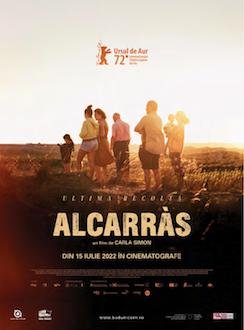Direction: Noah Baumbach
Country: USA
In White Noise, Oscar-winning writer-director Noah Baumbach (Frances Ha, 2012; Marriage Story, 2019) probes a different style, attempting to charm with adventure, crime thriller, and family comedy. The outcome of his first-ever adaptation is too theoretical and uneven to subsist. With Don DeLillo’s novel of the same name in mind, and showcasing an excellent pair of actors like Adam Driver and Greta Gerwig, Baumbach couldn’t quite handle the odd material. The course of events is perhaps excessively elaborated and the dramatic stakes feel rather low.
The story, set in the 1980s, focuses on the Gladneys and how they react to a hazardous cloud of deadly chemicals, the fear of death (who thought of Woody Allen?), and the physical and psychological effects of an experimental drug not listed in the pharmacies. Jack (Driver) is a Nazism expert and professor who enjoys knotty chatting with his Elvis-devotee fellow, Murray Siskind (Don Cheadle); Babette (Gerwig), who normally reveals and confides, is visibly depressed as she goes through a difficult phase marked by insecurity and obscurity.
With its derivative style and witless plot-twists, the film aspires to be grandiose, comprehensive, and clever but falls flat. Baumbach quickly loses control of his film and often struggles to keep the story afloat, leaving us on the sidelines. White Noise is a disjointed and deliberately delirious monument, whose ambition is overburdened with messed-up ideas and genres, and whose required excitement becomes a tricky thing to pull off. In the end, this offbeat journey has no discernible point, and the only thing one can enjoy is the actors’ qualified performances.














